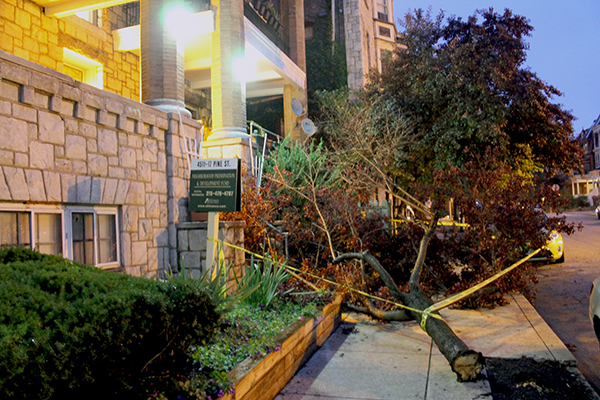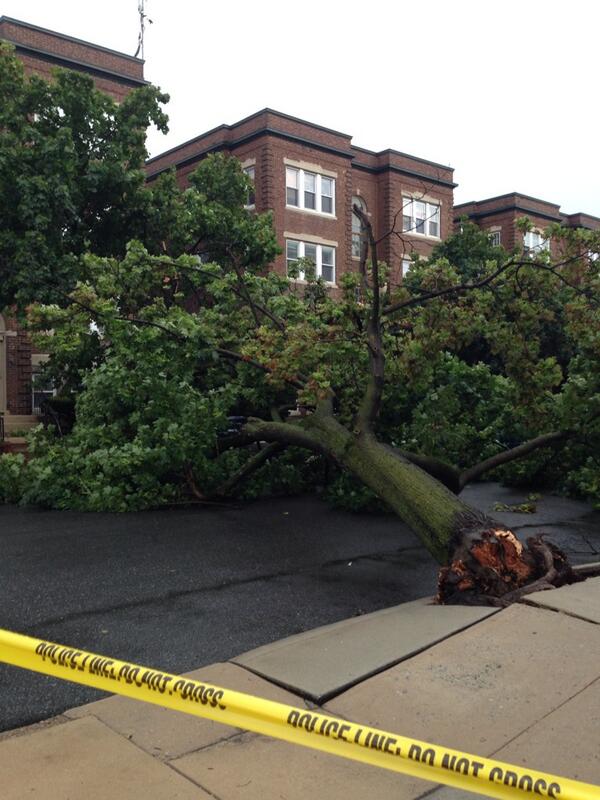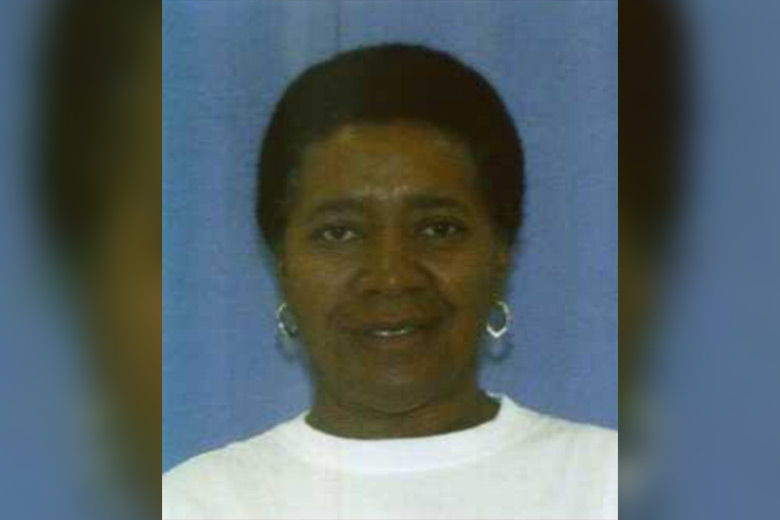Posted on 08 July 2014 by WestPhillyLocal.com
On Thursday, July 10, Greensgrow Farms, one of Philadelphia’s most successful urban farms, is launching their second year of the SNAP Box Program, a low-cost weekly farm share. As many of you know, Greensgrow recently opened a West Philly location, Greensgrow West, at 4912 Baltimore Ave, so now West Philly residents participating in the program can pick up boxes filled with farm-fresh produce in or close to their neighborhood.
The SNAP Box program gives low-income families using Supplemental Nutrition Assistance Program (SNAP) benefits access to top-quality fruits and vegetables from local farms. SNAP Box participants visit the farm weekly and use their SNAP benefits to pay $6.50 for an assortment of five to eight produce items. The Food Trust will be contributing Philly Food Bucks, giving families the opportunity to stretch their SNAP benefits by providing an extra $10 in coupons per session.
SNAP box pickups will begin July 10 and run in three four-week sessions throughout the summer. In addition, participants are provided nutritional information and are encouraged to attend free cooking classes after picking up their share. They also receive recipes corresponding to the contents of the week’s produce, and information about the farms who contributed to the share.
The SNAP Box is a product of Greensgrow’s Local Initiative for Food Education (LIFE) program, conceived as a remedy to the lack of fresh food available to low-income communities.
Greensgrow provides two farm share pickup locations in West Philadelphia. Here are the schedules:
Greensgrow Farms Mobile Market, 37th and Lancaster Avenue • Thursdays • 3:30–6:30 p.m.
Greensgrow West, 4912 Baltimore Avenue • Saturdays • 12:00–2:00 p.m.
Interested families can sign up here.
For more information or if you have questions, contact Deirdre Sheehy at SNAPbox@greensgrow.org or 215-430-0556 or visit the SNAP Box program website.
Posted on 07 July 2014 by WestPhillyLocal.com

Henry IV cast members: Marla Burkholder, Brian Ratcliffe, Brian Anthony Wilson and Jennifer Kidwell. (Photo by Jen Cleary/Shakespeare in Clark Park Facebook page)
The awesome people who bring Shakespeare plays to Clark Park every summer have prepared something of epic proportions this year. Shakespeare in Clark Park (SCP) is teaming up with Team Sunshine Performance Corporation (TSPC) for an unprecedented collaboration featuring a five-night production of Shakespeare’s HENRY IV, intimate pre-show events at the Gojjo and a nightly conversation station in the park.
The play, titled HENRY IV: YOUR PRINCE AND MINE, combines aspects of both Henry IV: Parts 1 and 2, and features a community army of over 100 soldiers, selected during a multi-month open call. The army encompasses a diverse array of folks, ranging in age from 13-59, and representing 36 neighborhoods. The production also stars leading performers of stage and film including Brian Anthony Wilson, Charlie DelMarcelle, and Brian Ratcliffe, and is directed by TSPC’s Co-Founder and Resident Director, Alex Torra.
The shows are scheduled for July 30 – August 3, beginning at 7 p.m. Continue Reading
Posted on 06 July 2014 by WestPhillyLocal.com
An altercation between two men at a local bar spilled out onto the sidewalk and ended in a shooting on Saturday night, according to police.
The fight started at Queen of Sheba and ended outside on 45th Street near Baltimore with one man shooting the other. The shooting was reported around 11:20 p.m., according to police. After the shooting both men fled the scene on foot through the driveway of the 500 block of South Melville Street, with one man chasing the other.
UPDATE: Police say the gunman fired 11 shots. The driveway and surrounding area was searched for a potential gunshot victim, but no one was found. Police say they also checked all area hospitals with no result. No other injuries were reported.
Police have identified the shooter and are currently searching for him (they won’t release his name). The victim is described as a black male who was speaking with an African accent. He was wearing a plaid shirt, tan pants, and had no shoes on.
Posted on 05 July 2014 by WestPhillyLocal.com
Thanks to quick actions by a neighbor, three people were able to escape an early morning house fire. The fire broke out shortly before 1:30 a.m. in a three-story row home near 51st and Chestnut Streets, according to a 6ABC News report. West Philly Local readers reported seeing a big, “raging orange” fire in the area.
A neighbor, Jamara Lamont-Boyd, who was walking by when the fire broke out, reportedly kicked the front door in and helped the house occupants escape the flames before fire crews arrived.
“…I kicked the front door in. I pulled the second door and yanked it in and banged and got the people out. There were people on all three floors,” Lamont-Boyd told ABC.
The building sustained damage from smoke and water. Luckily, no injuries were reported.
There was another, tragic fire in Philadelphia early Saturday morning. Four children died, several homes were destroyed and about 40 residents were displaced as the result of a fire that broke out around 2:40 a.m. in Southwest Philadelphia, in the Mount Moriah section, according to various reports.
Posted on 04 July 2014 by WestPhillyLocal.com
UPDATE (7/4/2014): Jacqueline Cannad has been located and is in good condition, according to police.
7/2/2014: Police are asking for public assistance in locating 64-year-old West Philadelphia resident Jacqueline Cannad. Mrs. Cannad was last seen leaving her residence on the 5700 block of Walton Avenue on Tuesday, July 1, at approximately 11:00 a.m., headed to Bible Study (in the area of Broad and Arch Streets).
Mrs. Cannad suffers from dementia and has had several seizures recently, according to police. She is described as 5’5, 150lbs, with brown eyes and black hair. She was dressed in a light blue ruffled blouse, dark blue jeans, and Skecher sneakers.
Anyone with information on the whereabouts of Jacqueline Cannad is asked to contact Southwest Detective Division at 215-686-3183, or dial 911.
Posted on 03 July 2014 by WestPhillyLocal.com
UPDATE (9:20 p.m.): More reports are coming in on downed trees and limbs in the area. A red maple tree is down on Pine St between 45th and 46th:

Photo by West Philly Local
A huge limb is down on 47th St just north of Locust, too, according to a reader report.
8:02 p.m.:

Photo by Emily Collier
A severe thunderstorm blew through the city just before 7 p.m., knocking over trees. This tree was knocked over at 49th and Pine Streets and we also received a report of a tree down on Saint Bernard between Spruce and Pine. At least one car was also caught up in the fallen limbs, according to a neighbor report. The owner was on the scene, “looking pretty bummed,” according to a tweet. “That WAS some crazy rain,” one neighbor tweeted. We hope no one was injured in tonight’s storm.
If you see any downed wires please report them immediately to PECO by calling 1-800-841-4141.











Recent Comments